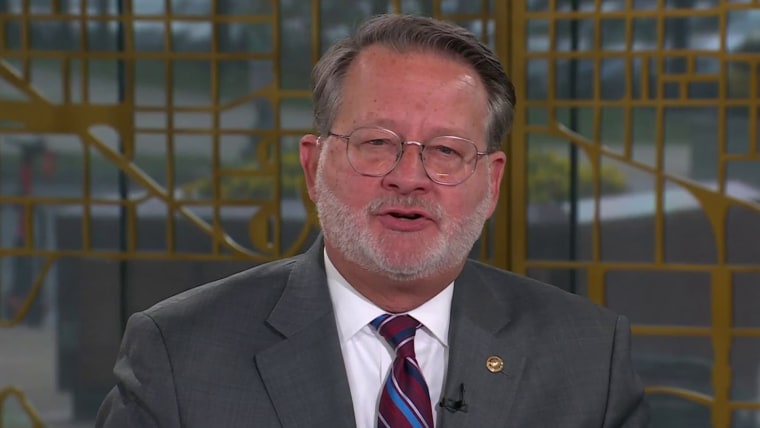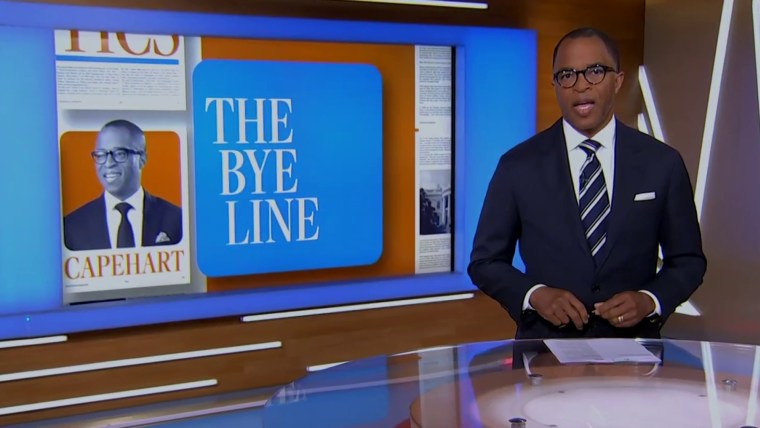As President Joe Biden meets with congressional leaders Tuesday about raising the debt ceiling, Republicans, led by House Speaker Kevin McCarthy of California, insist they are serious about negotiating a deal. House Budget Committee Chairman Jodey Arrington, R-Texas, told “Fox News Sunday” that Biden “negotiated as vice president and as a senator. We’re just asking him to be a responsible leader and do that again.” In a letter to the president, 43 Republican senators, including Senate Minority Leader Mitch McConnell of Kentucky, declared themselves “united” behind their House counterparts, who have “taken a responsible first step in coming to the table with their proposals.”
If more than a handful of Republicans really want to compromise with Biden, it would be a first. There’s a simple test, though, to determine whether the GOP is negotiating in good faith — and it can be found in the president’s budget proposal to repeal Trump-era tax cuts. If Republicans agree that any deal will include raising taxes on the wealthy and/or corporations, then a solution might be possible. But in the more likely scenario that they say tax increases are off the table, it would confirm beyond any shadow of doubt that McCarthy’s own debt limit bill isn’t an invitation to negotiate. It’s a ransom note.
At the outset, Biden should ask a simple question: “Are revenues on the table?”
As Moody’s Analytics chief economist Mark Zandi told the Senate Budget Committee last week, the debt can’t be lowered without crashing the economy just by reducing government spending. More revenue would also be needed. “We can’t do it with one [and] without the other,” Zandi said. “Both have to be done.”
Biden’s budget provides a template for the revenue side: repealing the 2017 Trump tax cuts for those making more than $400,000 a year, increasing capital gains taxes on millionaires and closing the “carried interest” and “pass-through” loopholes, which overwhelmingly favor the wealthy. Biden’s proposal would also partly repeal former President Donald Trump’s corporate tax cut, which never delivered the benefits that — stop me if you’ve heard this one before — Republicans promised would trickle down.
Obviously, not all of those measures would make it into a debt-ceiling compromise. But if we’re playing along with Republicans’ fiction that this is a real negotiation, then both sides will get something. That’s why at the outset, Biden should ask a simple question: “Are revenues on the table?” The likelier answer is “no.”

The House’s recent debt limit vote — which McCarthy allies now are portraying as a victory after he spent months trying to avoid passing such a bill — illustrated how tight the restraints on McCarthy are. Rep. Ralph Norman, R-Va., a member of the far-right Freedom Caucus, told Politico that McCarthy wooed the group by characterizing the bill as a floor, not a ceiling. That’s the exact opposite of an opening bid. A McCarthy spokesman didn’t dispute Norman’s characterization. Any hint that McCarthy is considering increased revenues would immediately put him at risk of being ousted as speaker.
Establishing Republicans’ intentions immediately is important for three reasons. First, it clarifies how much time Washington has before default. Thanks in part to McCarthy’s dawdling, lawmakers have just a handful of working days before June 1, the earliest possible default date, according to Treasury Secretary Janet Yellen. If a deal is somehow on the table, it must be struck quickly to get through Congress before then. If not, then the White House knows it can spend the next few weeks preparing the country for alternative steps, such as invoking the 14th Amendment. Similarly, House Democrats could focus exclusively on gathering the signatures for a discharge petition, which would force a vote on a clean debt ceiling.
Voters reject Republicans’ false choice between spending cuts and default.
Second, this approach sends a message to voices urging Biden to negotiate. They include so-called moderates such as Sens. Joe Manchin, D-W.Va., and Kyrsten Sinema, I-Ariz., (who, unsurprisingly, think they should be key players in said negotiations) and outside groups like the business lobby and nonpartisan budget hawks. That these voices have chosen to talk about the importance of negotiation rather than point out the recklessness of Republicans’ pushing the country toward default is sadly unsurprising. If there were a debate over whether the sky was blue or red, they would take the view that it’s purple. But if congressional Republicans confirm there is no deal to be had, it can go some way toward rebutting this farcical view and increase the pressure, if only a little, on the few Republicans who have good-faith intentions to solve the crisis.
Third, voters reject Republicans’ false choice between spending cuts and default. A new Washington Post-ABC News poll found Americans almost split on whom they’d blame for a debt default, with 39% saying Republicans in Congress, 36% saying Biden and 16% saying both. (Independents were slightly more likely to blame Republicans than Biden, 37% to 29%.)

But the poll also found just 26% of respondents agreed that Congress should “allow [the] government to pay debts only if Biden agrees to cut spending.” Fifty-eight percent said the debt limit and the budget should be handled separately. Even a plurality of Republicans (46%) rejected their party’s default-friendly stance. The better known the GOP’s “cuts or default” approach is, the better for Biden politically — and the stronger the case for the 14th Amendment solution or other unilateral actions.
As longtime Democratic strategist Simon Rosenberg likes to put it, Republicans are poised to take a “wrecking ball” to the economy, and they’re using a farcical excuse for “negotiations” as cover. But negotiation is “give and take,” not “take and take.” With just one question — “revenues: yes or no?” — Biden can expose Republicans’ duplicity. Then he can move on to saving the country from a catastrophe.

